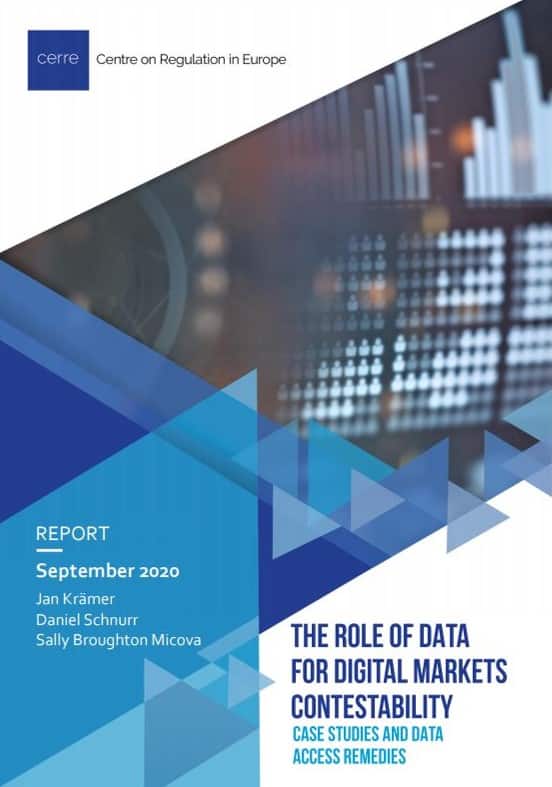and University of Passau
Jan Krämer is an Academic Co-Director at CERRE and a Professor at the University of Passau, Germany, where he holds the chair of Internet & Telecommunications Business.
Previously, he headed a research group on telecommunications markets at the Karlsruhe Institute of Technology (KIT), where he also obtained a diploma degree in Business and Economics Engineering with a focus on computer science, telematics and operations research, and a Ph.D. in Economics, both with distinction.
He is editor and author of several interdisciplinary books on the regulation of telecommunications markets and has published numerous articles in the premier scholarly journals in Information Systems, Economics, Management and Marketing research on issues such as net neutrality, data and platform economy, and the design of electronic markets.
Professor Krämer has served as academic consultant for leading firms in the telecommunications and Internet industry, as well as for governmental institutions, such as the German Federal Ministry for Economic Affairs and the European Commission.
His current research focuses on the role of data for competition and innovation in online markets and the regulation of online platforms.
Jan Krämer is an Academic Co-Director at CERRE and a Professor at the University of Passau, Germany, where he holds the chair of Internet & Telecommunications Business.
Previously, he headed a research group on telecommunications markets at the Karlsruhe Institute of Technology (KIT), where he also obtained a diploma degree in Business and Economics Engineering with a focus on computer science, telematics and operations research, and a Ph.D. in Economics, both with distinction.
He is editor and author of several interdisciplinary books on the regulation of telecommunications markets and has published numerous articles in the premier scholarly journals in Information Systems, Economics, Management and Marketing research on issues such as net neutrality, data and platform economy, and the design of electronic markets.
Professor Krämer has served as academic consultant for leading firms in the telecommunications and Internet industry, as well as for governmental institutions, such as the German Federal Ministry for Economic Affairs and the European Commission.
His current research focuses on the role of data for competition and innovation in online markets and the regulation of online platforms.





